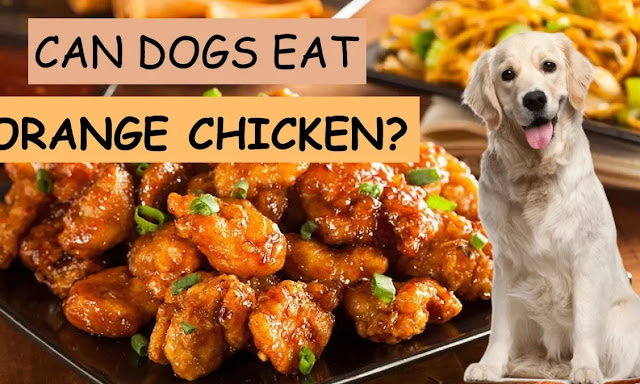Can Dogs Have Orange Chicken?
Orange chicken is a popular Chinese-American dish that combines crispy deep-fried chicken with a tangy, sweet orange sauce. As dog owners, we often find ourselves wondering if our furry friends can enjoy the same foods we do. Orange chicken, with its delicious flavors and enticing aroma, may tempt us to share it with our canine companions. However, it is essential to consider whether this dish is safe for dogs to consume.
In this article, we will explore the potential risks and benefits of feeding orange chicken to dogs. By understanding the nutritional value and potential hazards associated with this dish, we can make informed decisions about what is best for our four-legged friends' health and well-being.
Understanding A Dog's Digestive System
A dog's digestive system differs significantly from that of humans, which impacts their ability to digest certain foods. Dogs have a shorter digestive tract compared to humans, resulting in faster digestion. Their stomachs produce more acid and enzymes designed to break down proteins rather than carbohydrates. While dogs are primarily carnivorous, they can consume some fruits and vegetables in moderation. However, when it comes to orange chicken, caution should be exercised.
Orange chicken typically contains high amounts of seasoning and spices that may upset a dog's stomach or cause digestive issues. Additionally, the batter used in orange chicken is often fried, which can be challenging for dogs to digest properly.
Potential Risks Of Feeding Orange Chicken To Dogs
While dogs are generally omnivorous, there are certain human foods that can be harmful to their health. Orange chicken, a popular dish in Chinese cuisine, may pose potential risks if fed to dogs. The primary concern is the high levels of sodium and spices found in orange chicken recipes. Excessive sodium consumption can lead to dehydration and electrolyte imbalances in dogs, potentially causing kidney and heart problems.
Additionally, the spices used in orange chicken, such as garlic and onion powder, can be toxic to dogs and may lead to gastrointestinal distress or even damage red blood cells. It is crucial for dog owners to prioritize their pet's well-being by avoiding feeding them orange chicken or any other human foods that could potentially harm them.
Ingredients In Orange Chicken And Their Impact On Dogs
Orange chicken is a popular Chinese dish consisting of deep-fried battered chicken pieces glazed with a tangy orange sauce. While it may be tempting to share this tasty treat with your furry friend, it is important to consider the ingredients and their potential impact on dogs. The main components of orange chicken include chicken, flour, cornstarch, sugar, soy sauce, vinegar, and orange juice.
While chicken itself is generally safe for dogs in moderation, the other ingredients can pose risks. Flour and cornstarch are high in carbohydrates and can lead to weight gain or digestive issues in dogs. Sugar is not recommended for dogs as it can cause dental problems and contribute to obesity. Soy sauce contains high levels of sodium which can be harmful to dogs if consumed in excess.
Signs Of Allergic Reactions In Dogs To Consider
While dogs can enjoy a wide variety of human foods, it's important to be aware of potential allergic reactions. If you're considering feeding your dog orange chicken, keep an eye out for any signs of allergies. Common symptoms include itching, redness or swelling around the face and paws, hives or rashes on the skin, excessive scratching or licking, sneezing, coughing, vomiting, diarrhea, or difficulty breathing.
These signs may indicate an allergic reaction that requires immediate attention from a veterinarian. It's crucial to remember that every dog is unique and can react differently to specific foods.
Moderation And Portion Control For Safely Feeding Orange Chicken To Dogs
When it comes to feeding your canine companion orange chicken, moderation and portion control are crucial for their safety and overall health. While dogs can consume small amounts of cooked chicken, the high sodium and spice content in orange chicken can be harmful in excess. It is important to remember that orange chicken is typically prepared with additional ingredients like sauces, seasonings, and oils that may not be suitable for dogs.
To ensure a safe indulgence, limit the amount of orange chicken you offer your dog. A small portion as an occasional treat or addition to their regular diet should suffice. Remove any bones, skin, or breading before serving, as these can pose a choking hazard or cause digestive issues.






Nhận xét
Đăng nhận xét